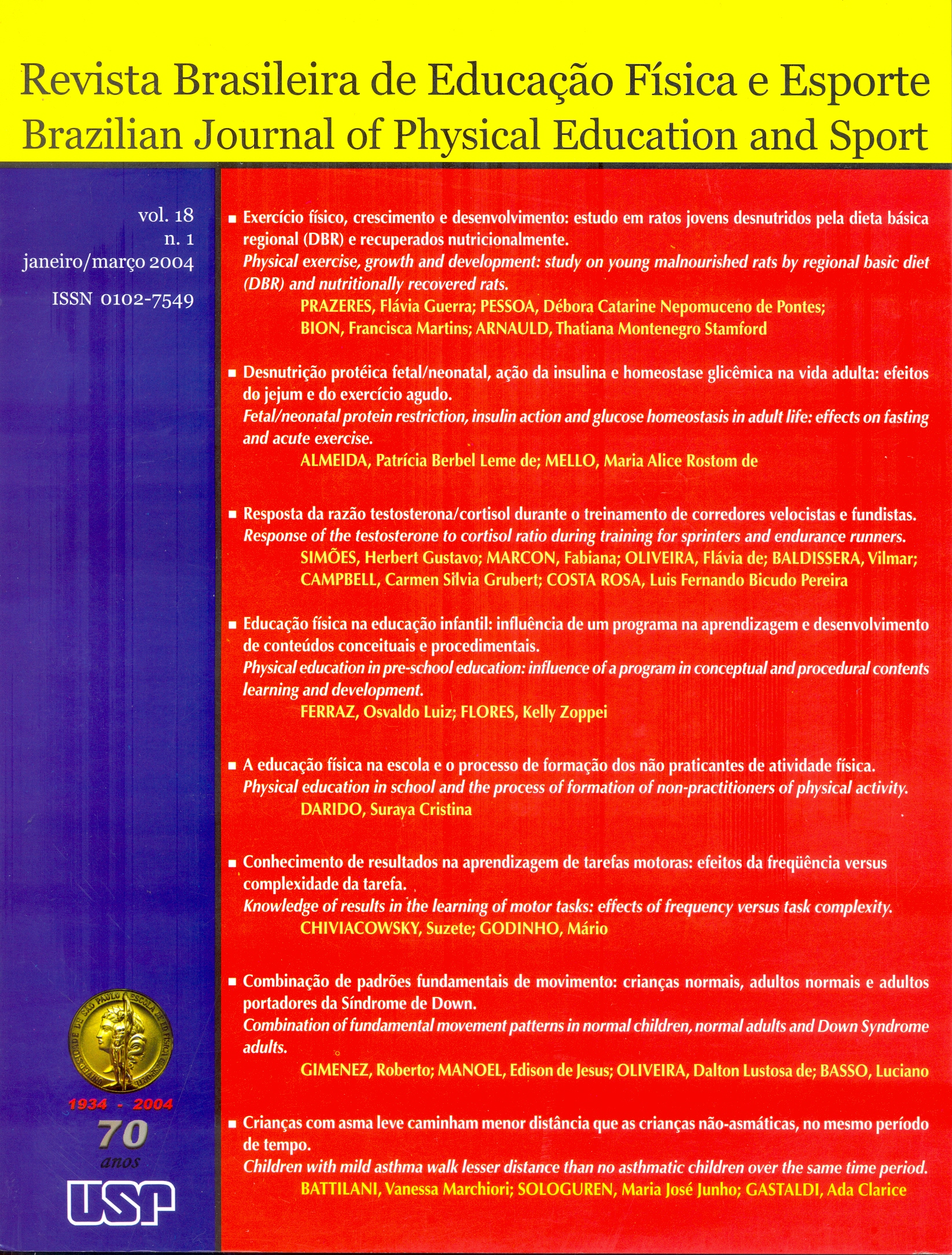Physical education in pre-school education: influence of a program in conceptual and procedural contents learning and development
DOI:
https://doi.org/10.1590/S1807-55092004000100005Keywords:
Physical education, Childhood physical educationAbstract
The aim of this study was to assess a Physical Education program in pre-school education as a means of testing the role of a systematised teaching with the content units: a) basic motor skills; b) knowledge about body segments; and c) notion of Physical Education. Two groups from the official education system of the city of Sao Paulo were compared, each one with thirty five children (four years-old in average). The experimental group was submitted to fifty minutes of Physical Education classes, twice a week; the control group had no Physical Education at all. The children from the two groups were assessed on five tests: three consisting of basic motor skills performance (jumping, throwing and balance), one on recognising body segments, and an interview to evaluate the notion of Physical Education. The same test was administered at the end of the program, six months later. In the basic motor skills test, the children were classified in stages of development (GALLAHUE & OZMUN, 2001). The identification of body segments was carried out by a descriptive statistical analysis. The interview was interpreted by a content analysis (TRIVIÑOS, 1987). The results showed significant positive changes on both groups on the skills of jumping and balance, indicating an influence of maturational process, not the program. Specifically in the basic skill of throwing, it was detected significant positive changes on both groups, with the superiority of the experimental group, revealing the program as an effective strategy. Concerning to conceptual contents, the experimental group showed superior learning on the notion of Physical Education. In regard to the identification of body segments it was detected significant positive changes on both groups, with the superiority of the experimental group in one component. Besides, the results showed the need to consider the time of practice required to develop basic motor skills, evoking the perspective of learn to learn. In sum, it was verified the importance to consider school Physical Education contents, not only in the procedural, but also in attitudinal and conceptual dimensions.Downloads
Download data is not yet available.
Downloads
Published
2004-03-01
Issue
Section
naodefinida
License
Todo o conteúdo da revista, exceto onde está identificado, está licenciado sob uma Licença Creative Commons (CC-BY)
How to Cite
Ferraz, O. L., & Flores, K. Z. (2004). Physical education in pre-school education: influence of a program in conceptual and procedural contents learning and development . Brazilian Journal of Physical Education and Sport, 18(1), 47-60. https://doi.org/10.1590/S1807-55092004000100005


